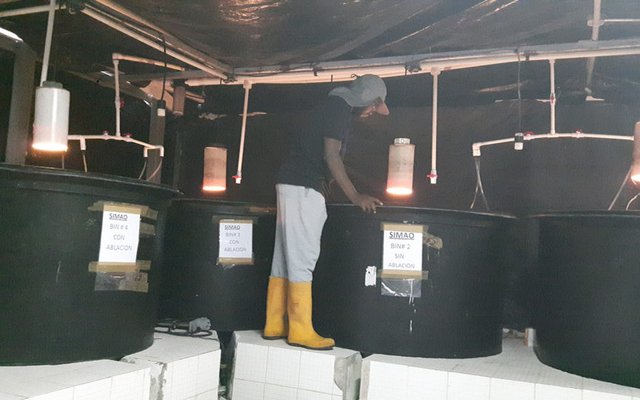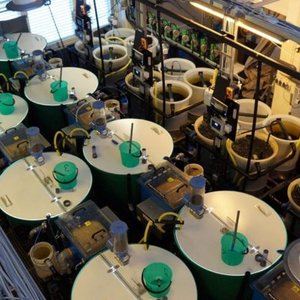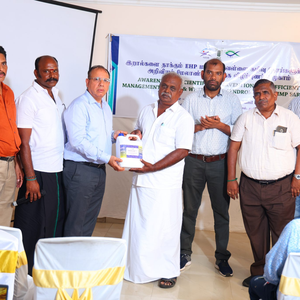The work of postdoctoral researcher Simao Zacarias on eyestalk ablation in shrimp hatcheries was selected as one of three finalists for the Global Aquaculture Alliance’s annual Global Aquaculture Innovation Award.
Zacarias’ work focuses on a key animal welfare issue, the standard shrimp hatchery practice of unilateral eyestalk ablation to achieve higher egg production. Ablation has not only caught the attention of animal welfare advocates who are concerned about animal cruelty, but Zacarias notes that ablation of broodstock produces offspring that are more vulnerable to disease.
That’s crucial, given that perhaps the biggest challenge confronting the shrimp industry the past two decades has been disease. Based on evidence from his research in shrimp hatcheries in Honduras and Thailand, the University of Stirling researcher proved in laboratory testing that post-larvae and juveniles from non-ablated Pacific white shrimp broodstock showed higher survival rates when they were challenged with Acute Hepatopancreatic Necrosis Disease (AHPND, also known as Early Mortality Syndrome, or EMS) and White Spot Virus Disease (WSSV).
Moreover, Zacarias believes that by providing high-quality, nutritious feed to broodstock in their pre-maturation stage, shrimp farmers can achieve a similar egg production rate without resorting to eyestalk ablation.
GOAL finalists will present at GAA’s upcoming virtual GOAL 2020 conference to be held from October 5-8, 2020. More information here.













